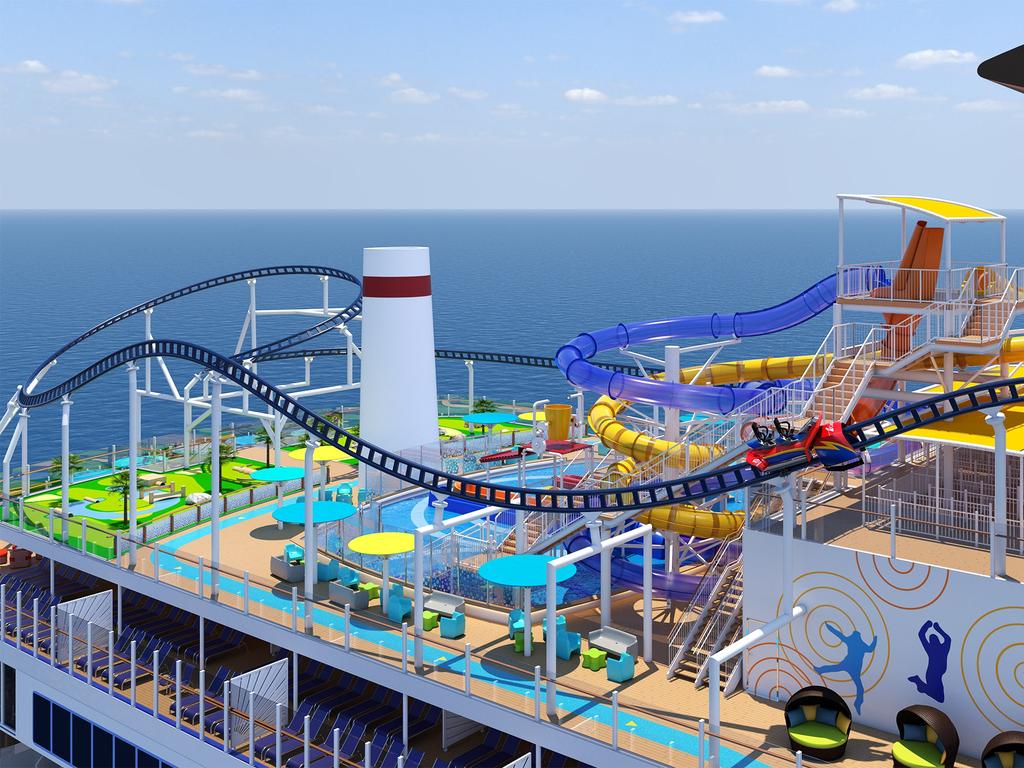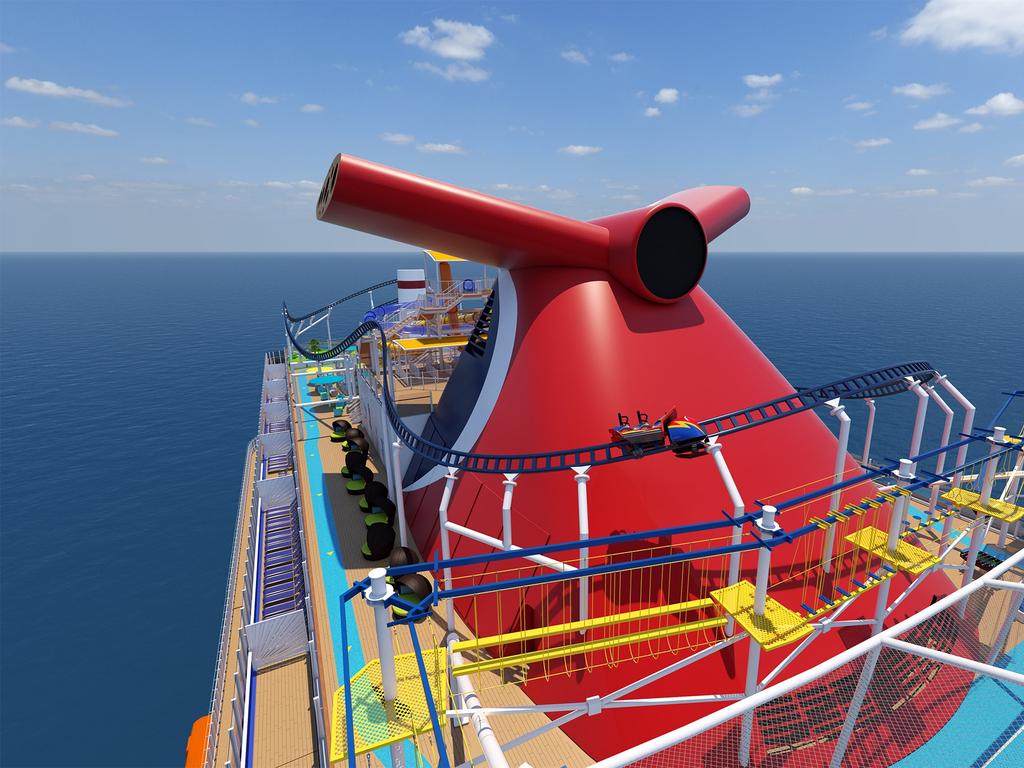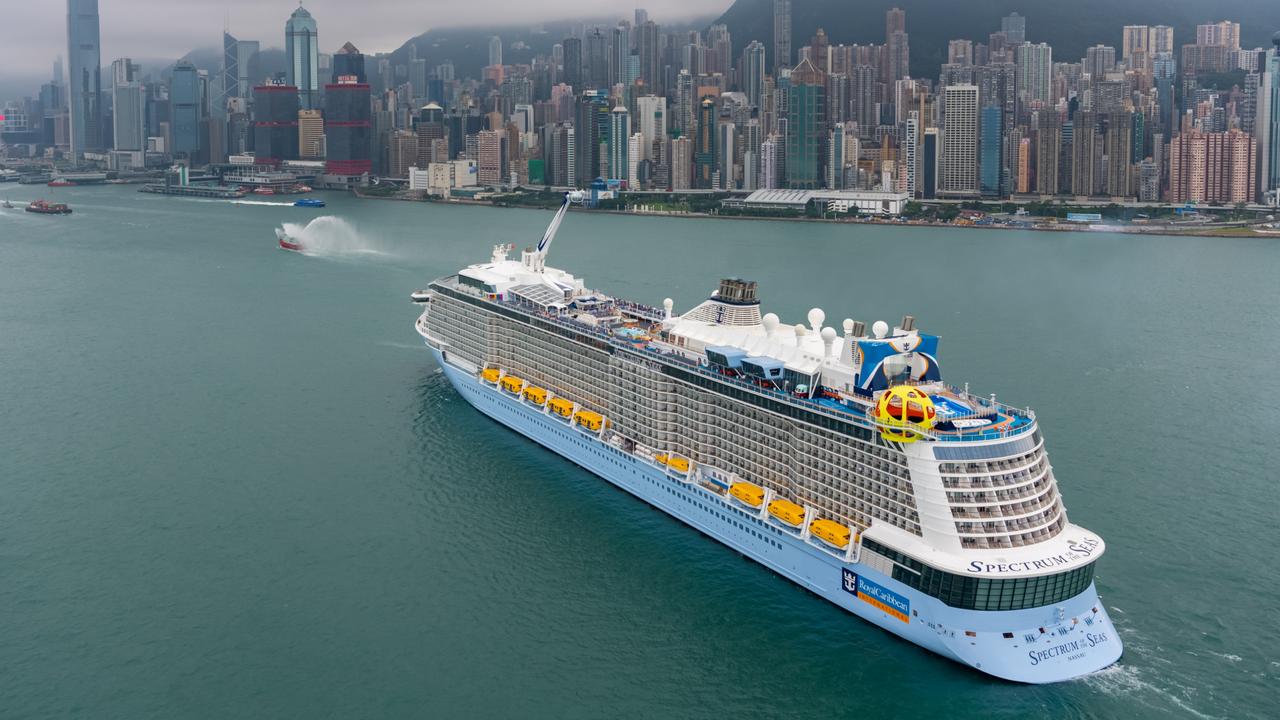First roller coaster-equipped cruise ship sets sail
A popular cruiseliner is taking guests to new heights, by becoming the first-ever cruise ship to set sail with an on-board roller coaster.

Carnival rides are taking to the high seas.
Carnival Cruise Line’s newest and largest-ever vessel launched out of Florida’s Port Canaveral on July 31, becoming the first-ever cruise ship to set sail with an on-board roller coaster, Bolt.
The landmark cruise creation features an 243-metre-long track marked with twists, dips and a hairpin turn around the ship’s tunnel, industry news site Cruise Critic reported.


The attraction is positioned approximately 6m above the ship’s 18th deck – specifically, above a miniature golf course and jogging track – and 57m above sea level, according to Attractions Magazine. The speed is controlled by riders, who can make it go up to 65km/h.


Due to its unique location on top of a cruise ship, engineers had to get creative in making the attraction functional. It does not use gravity like most roller coasters, but rather electricity. The motorcycle-like cars (only two people can ride Bolt at a time) allow riders to go faster by turning the right handlebar back, like a throttle, or pushing a button by the left handlebar for an extra boost.


For riders who choose to go as fast as possible, the Points Guy says the experience only lasts about 20 seconds. The experience costs $US15 ($A20), a separate fee from the cruise’s ticket price which, the Points Guy said is worth it for thrillseekers, but certainly not everyone.
“It was certainly more exciting than I expected, but because you (or your driver) can decide how heavily to use the throttle, it’s also a great experience for people who aren’t afraid of heights but prefer a slower-paced ride,” the reviewer wrote of his time aboard Bolt.
“So, is it worth the $15 price tag? It’s not a ‘one-size-fits-all’ answer. I likely wouldn’t pay it, but if you’re someone who likes the bragging rights that come with exclusive experiences or if you’ve got thrillseeking kids, it might be money well spent.”
This article originally appeared on the NY Post and was reproduced with permission



